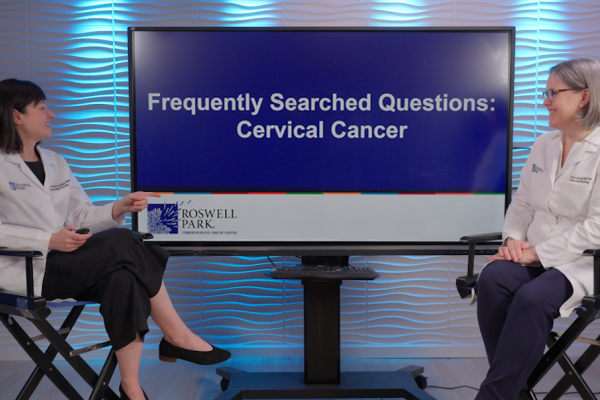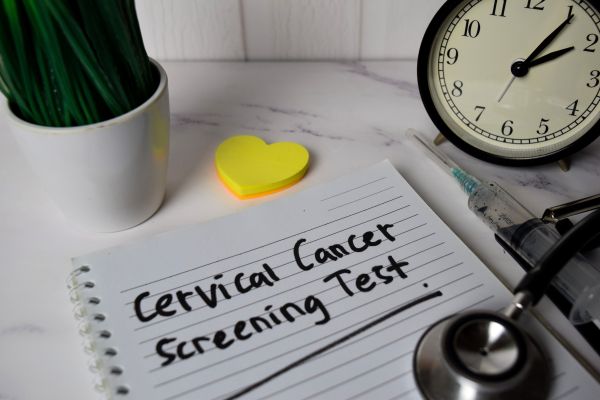While the answer may seem simple, the circumstances surrounding a hysterectomy vary from patient to patient. Your risk for developing cervical cancer will depend primarily on whether your cervix was removed during the hysterectomy — a total hysterectomy removes the uterus and cervix, while a supracervical hysterectomy removes only the uterus.
Is the cervix usually removed during a hysterectomy?
The simple answer is yes, although there are situations in which the cervix is not removed. “Most commonly, anatomical factors may lead a surgeon to perform a supracervical hysterectomy, such as if there is scarring behind the cervix from endometriosis,” explains gynecologic oncologist Karen McLean, MD, PhD, FACOG, Associate Professor of Oncology at Roswell Park Comprehensive Cancer Center. “But overall, removal of the cervix is recommended and standard for women who undergo hysterectomy as part of uterine cancer surgery, for staging and treatment purposes.”
Even if the hysterectomy is being performed for non-cancer reasons, there are benefits to having the cervix removed. “During a minimally invasive hysterectomy, the uterus is removed through the vaginal canal. For this procedure, we have to remove the cervix as well, otherwise it will block the removal,” says Dr. McLean. Additionally, if a person is undergoing this procedure to treat abnormal bleeding, “we will want to take out the cervix, otherwise the patient has a chance of continued bleeding afterward.”
Cancer screening after a hysterectomy
For patients who’ve undergone a supracervical hysterectomy, there is still a risk for developing cervical cancer. “If a patient still has their cervix, they should continue to undergo cancer screening,” advises Dr. McLean. This includes regular visits to your gynecologist and Pap tests. Your risk for cervical cancer also will depend on your medical history — whether you’ve had abnormal Pap tests in the past, or whether you have a history of human papillomavirus (HPV), the virus responsible for the majority of cervical cancers.
For patients who’ve undergone a total hysterectomy — where the cervix is removed — and have no cervical dysplasia or precancer cells, the risk of developing the cervical cancer afterwards is lower. However, patients with a history of abnormal Pap tests or HPV may need to continue routine cancer screenings depending on the details of prior tests.
“There’s a duration after your hysterectomy where you may need to have a vaginal smear,” says Dr. McLean. Like a Pap test, this collects cells from the vagina to test for vaginal dysplasia – skin cells in the vagina that begin to grow abnormally. According to The American College of Obstetricians and Gynecologists, patients with specific Pap test abnormalities prior to their hysterectomy should “continue to have screening for 20 to 25 years after surgery.” It is recommended that you discuss the need for future testing with your gynecologist or primary care provider.
Get a second opinion at Roswell Park
We can arrange to obtain your testing or scans, have our cervical cancer experts review them right away, and set up a consultation with our gynecologic oncologists.
Cervical cancer prevention
Screening and prevention for cervical cancer can be easily worked into your annual visits with your primary care provider and gynecologist. Regular Pap tests and HPV tests examine the cervical cells for changes that could lead to cancer over time. If changes are detected, next steps in testing and treatment can be discussed. Smoking is another risk factor that Dr. McLean urges patients to take into consideration. “Of the things we can change, smoking cessation is huge.”
Persistent infection with HPV is the leading cause of cervical cancer, which is why HPV vaccination is so important. “The goal is total vaccination,” says Dr. McLean “The National Cancer Institute recommends HPV vaccination for all persons, not just women, through age 26, and vaccination has been approved for adults through age 45.”




